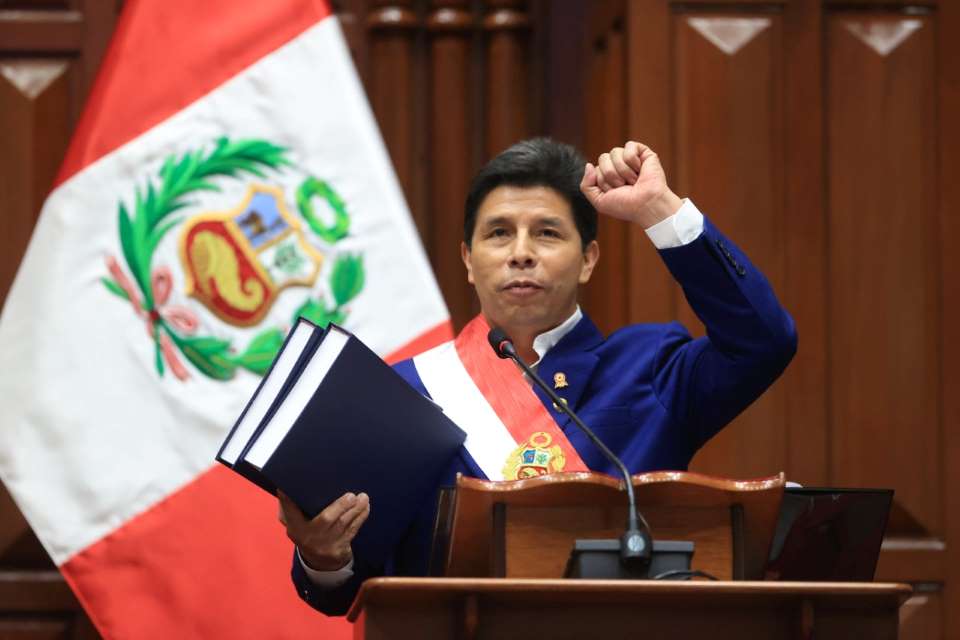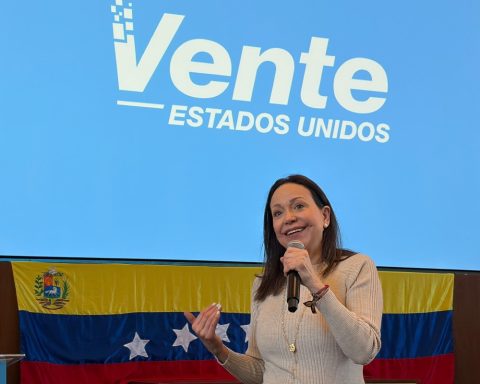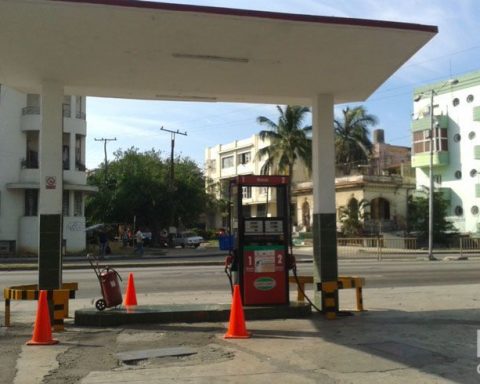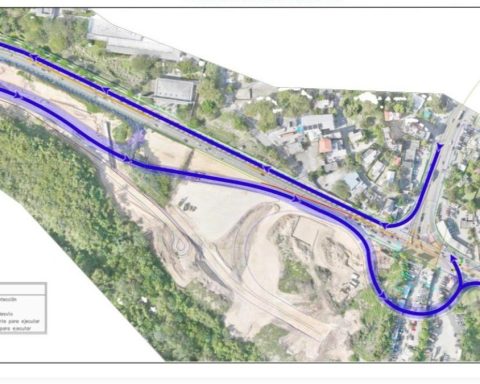The Secretary of Energy, Flavia Royónaffirmed this Monday that the energy sector “can in the medium term go from a negative balance of US$ 5,522 million to a positive balance of between US$ 4,000 and US$ 8,000 million in 2026”, leading the traditional lunch for the Oil Day.
In addition, the official highlighted the Government’s commitment to “environmental problem” and assured that “a decarbonization horizon” must be set within the framework of a just transition that ensures “clean, affordable and sustainable energy” and takes into account “their own objectives and interests.”
Royon’s words were delivered at the Sheraton Hotel in the City of Buenos Aires, on the occasion of the event that the Argentine Oil and Gas Institute (IAPG) organizes every year and brings together representatives from the entire sector.
At the beginning of her speech, the head of Energy, who this Monday will be in office for four months, said that “there is no sustainable energy policy with a long-term perspective possible, without the necessary strategic partnership of the public and private sectors”.
Within this framework, he pondered that the chain “employs almost 100,000 people, and in July of this year it had created 3,500 jobs with 13 months of uninterrupted growth” and highlighted the records in gas and oil production.

In October, shale oil production represented a year-on-year increase of 40%, while oil production was the highest since 2009, reaching 619,000 barrels per day.
For its part, the production of unconventional gas was the highest in local history in August, and represented 56% of the total, according to data provided by the official.
The president of the IAPG, Ernesto Lopez Anadon; the Minister of Energy and Natural Resources of Neuquén, Alejandro Monteiro; the president of YPF, Pablo Gonzalez; the president of Shell Argentina, Ricardo Gutierrezand the CEO of Tecpetrol, Ricardo Markous; among other managers.
In another section of his speech, Royon stressed that the energy sector “In the medium term, it can go from a negative balance of US$5,522 million, to a positive balance between US$4,000 and US$8,000 million in 2026.”
The energy sector “can in the medium term go from a negative balance of US$5,522 million to a positive balance of between US$4,000 and US$8,000 million in 2026.”Flavia Royón
When reviewing the main management milestones, Royon mentioned the beginning of the construction of the Nestor Kirchner pipeline in Vaca Muerta, the projects in progress for Oleoductos del Valle and Nor Andino, the Fénix project and the GasAr 4 and 5 Plan.
He also pointed out the agreements that YPF has with the Malaysian oil company Petronas, in the offshore exploration initiative that will be carried out 300 kilometers from the coast of Mar del Plata, and in the possibilities offered by the development of hydrogen, among others.
Regarding the Néstor Kirchner gas pipeline, Royon reaffirmed that “The first stretch (from Tratayén to Salliqueló) will end in June 2023 and will mean savings of US$2.2 billion in imports and subsidies.”
In addition, he revealed that for the works of the second section, the country obtained “financing for US$ 689 million from the National Development Bank of Brazil (Bndes) and US$ 540 million from CAF.”
Likewise, the works of Oleoductos del Valle, which have an investment of US$ 750 million, will allow the export of Vaca Muerta oil, which will ensure “an annual income of between US$ 4,000 and 6,500 million,” he explained.
We celebrate National Oil and Gas Day, together with all the players in the sector, in a conference organized by @IAPG_Info.
115 years of a key industry for the country’s growth, because it generates employment, investment and allows the development of the entire value chain. pic.twitter.com/pqmk0j4sAb
— Flavia Royon (@FlaviaRoyon) December 12, 2022
About him GasAr PlanRoyon estimated that its extension through chapters 4 and 5 will allow “currency savings of around US$27,000 million, while generating subsidy savings of more than US$18,000 million for the period 2023-2028”.
The official pointed out that if the YPF-Petronas agreement progresses successfully, the country will go from importing 35 ships of liquefied natural gas (LNG) per year to exporting 460 ships.
Meanwhile, in relation to the Argerich Project for offshore exploration in the Argentine Sea, the portfolio holder considered that “it could mean another Vaca Muerta for our country, exports for US$ 7,000 million.”
In line, the president of the IAPG, Ernesto López Anadón, affirmed that “today Argentina, like few countries, has a responsible and sustainable industry, which has shown innumerable signs of being capable of responding to the various situations it faces, with enviable efficiency and technology”.
In this sense, he assured that “the future lies in an intensive and limitless development of these abundant resources” and said that “hydrocarbons have become a huge export project for the country.”
For this, he said that the industry needs “adequate conditions so that the companies in the sector and not the State, are the ones that generate the necessary infrastructure”; “free availability of foreign currency” and “freedom to export”.
In relation to caring for the environment, Royon highlighted the Government’s commitment to the problem and assured that Argentina will advance within the framework of a just transition based on “own interests and objectives” to ensure “clean, affordable and sustainable energy”. .
Royon indicated that the decarbonization of the energy matrix, in addition to favoring the care of the Earth, can also be a lever for the economic development of the country.
“I firmly believe that the energy transition will favor investment and the development of national production chains to achieve an inclusive, stable, sovereign, dynamic, federal and sustainable matrix,” said the head of Energy.


















